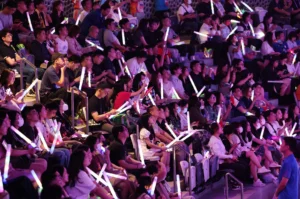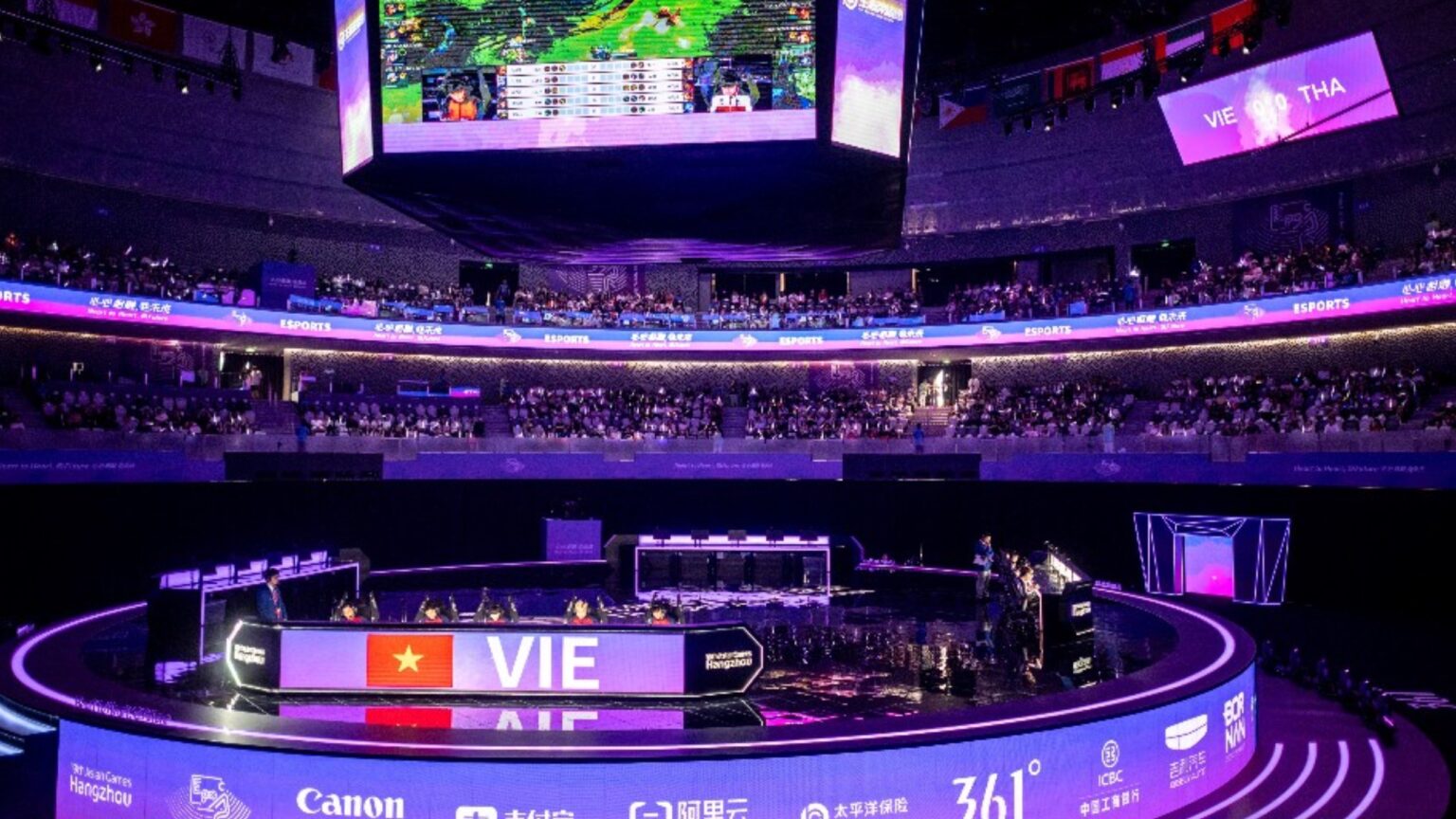In a groundbreaking turn of events at the Asian Games in Hangzhou, China, eSports has made its grand debut as a medal event.
The much-anticipated moment unfolded as China secured its first gold medal in the smartphone multiplayer battle game “Arena of Valor,” making history in competitive gaming. This victory not only delighted fans but also underscored the growing significance of eSports on the global stage.
Hosts China on Tuesday won the #AsianGames' first-ever gold in eSports in a landmark for gaming, beating Malaysia 2-0 in the smartphone game Arena of Valor https://t.co/w0d28U9tVW ➡️#AFPSports pic.twitter.com/tBbww7XxHg
— AFP News Agency (@AFP) September 26, 2023
Esports takes the spotlight
The newly constructed eSports venue in Hangzhou hosted this monumental event, and organizers left no stone unturned in creating an electrifying atmosphere. With dazzling lights, music, and live commentary, the venue resembled a futuristic gameshow set straight out of a sci-fi movie. Waving multicolored light sticks, thousands of fans in attendance added to the spectacle.

The excitement reached a fever pitch as the Chinese team took the stage. Communicating via headsets, the players controlled their in-game avatars, known as “heroes”, on massive screens above the stage. This sight might appear unusual for traditional sports enthusiasts, but it showcased the fusion of technology and athleticism that defines eSports.
China’s dominance in “Arena of Valor”
The Asian Games version of “Arena of Valor” witnessed two teams of five players battling it out. They strategically selected their “heroes” to engage in fierce virtual combat to destroy the opponent’s base. A destroyed base equated to a set won, and two groups succeeded in the best-of-three contest.
China’s dominance became evident as they secured a 2-0 victory over Malaysia, sending fans into a frenzy of celebration. The Chinese players were delighted after the medal ceremony. Jiang Tao remarked, “I feel excited and happy,” while Xu Bicheng beamed joyfully.
Mixed reactions to Esports in Asian games
While including eSports in the Asian Games drew praise from many fans, it also sparked debate on social media. Some expressed reservations about eSports receiving airtime on TV, while others celebrated the recognition of eSports on such a prestigious stage.
One spectator, Yvonne Yu, who had played the game for seven years, said, “I am so touched and very proud, especially when I see the eSports project being recognized on such a stage.” These sentiments were echoed by many who witnessed the historic event.
The Chinese government’s stance on gaming remains ambiguous, with recent regulations limiting screen time for children under 18. However, other departments have shown support for eSports. Establishing a National Esports Development Research Institute and significant investments in eSports infrastructure exemplify the government’s mixed approach.
China’s global Esports dominance
According to a recent South China Morning Post article, China is the world’s largest eSports market in terms of revenue and fanbase. In 2022, the market reportedly generated $445 million, representing 64.8% of the Asian eSports market.
China is the world’s largest market for the esports industry, but esports organisations have been struggling to hire enough talent. pic.twitter.com/KGv1dS85Wr
— South China Morning Post (@SCMPNews) July 22, 2021
China boasts 400 million eSports fans, the highest number globally. These statistics underline the immense potential of eSports in China’s digital economy.
With its inclusion in the Asian Games, eSports now sets its sights on Olympic recognition. Players and managers passionately advocate for eSports to be considered an Olympic sport. Wong Kang Woon, team manager of Malaysia’s eSports team, emphasized the physical aspects of eSports, saying, “Esports players are not just sitting on the chair. They even sweat. You can check their heartbeat. There is sports science involved.”









 and then
and then